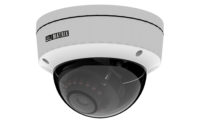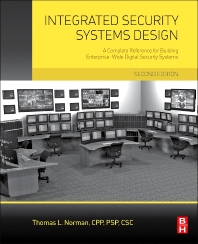In a campaign to attract dealers and installers to its wholesale alarm monitoring business, Mason Monitoring of Kings Park, N.Y., embracing its self-defined maverick persona, pitches a $2 per account deal while also offering “two years of free central station monitoring on any basic digital account switched to Mason” during a set signup time.
The security industry, accustomed to competitive head butting and aggressive marketing, nonetheless recently got a gander of a less frequently used strategy. Mason broadcast email messages to dealers who install and that specifically named competitor targets such as Rapid Response of Syracuse, N.Y. and C.O.P.S. Monitoring of Williamstown, N.J. Using low pricing as an attraction to switch partners, among other follow-up factors, is nothing new in any industry. And it adds up for Mason, according to its central station manager Mike Cannatella, a sometimes spokesperson, and who, even back in 2010, said that “it really doesn’t cost much to monitor digital accounts” in an industry interview.
But naming particular company names, not surprisingly, doesn’t sit well with some.
“There’s been a lot of reaction,” says Mark Matlock, senior vice president of United Central Control of San Antonio, Texas. “Shock. Utter disbelief.” Specifically targeting competitors by name was “unnecessary,” he contends.
While not shying away from the campaign, Cannatella has heard the blowback from some wholesale alarm monitoring firms or what he calls hearing “the crickets for days.” His aim is to “differentiate. We are not static. We are very, very aggressive in marketing, though it’s not a dig against anyone or a personal attack. We try different things. Sometimes things work and some things don’t work.”
But does the Mason Monitoring deal work for dealers and, in a more all-encompassing way, does focusing on price— on low price— work for dealers as they choose a central station partner, no matter who it is?
Well, the owner of security dealer company based in Texas — a Mason customer after a careful evaluation, he says — considered such factors as “length of time in the business, their standing behind their service, solid references and equipment for redundancy. I believe, when I reviewed them, they were down for minutes one time in four years.”
When it comes to pricing, the dealer says Mason “came in at just about the same rate as others” he looked at.
Matlock has a different take.
“First, dealers should equate [Mason’s name-the-names approach] to your own businesses,” he comments. On the advertised low per-account pricing, “There has to be a way they get to that price. How does a firm do that? Beyond the basics, you charge above the market for other services.”
Jerry Chatel of Global Fire & Safety, Denver, Colo., sees Matlock’s point. So-called “ala carte options and additional charges add up. I look, instead, for quality service and qualified pricing.”
Matlock points out that dealers switching central stations creates a major “disruption to the business. Your equity is at stake” while urging dealers to “use common business sense.”
Cannatella says that Mason “wants to help our installers. Nothing is set in stone. Installers can bring things to our table, too.” Potential Mason customers often come “by word of mouth,” he says. “We have our dealer form on our Web site and are heavy on the Internet. And, by the way, we have feedback that a switch is not always about price,” he says.
The Mason central station manager adds, “Anything that is less cost comes with less? That is not necessarily true.”
Still, the dust up has gone beyond pricing and the “very, very aggressive marketing” efforts of Mason Monitoring.
In mid-June, Jeffrey Atkins, president of Rapid Response, put out a “The Choice is Clear” letter in which he notes Rapid Response’s differences, including “to invest in the most advanced and fully supported technologies —both hardware and software, to build the most highly qualified and extensively trained workforce in the industry and to develop innovative technologies…providing our dealers with far greater efficiencies and cost-saving methods.”
In its own chart of pros and cons, Atkins ticks off what he feels are Mason’s cons. These include not UL Certified, not FM approved, no education requirements for appropriate Mason staff as well as such elements as a 100 KW KatoLight generator and a 10 hour battery backup at the Mason operation, according to the materials provided to SDM.
Going beyond the current contentions among some wholesale alarm monitoring businesses, security dealers that do not perform their own in-house monitoring seem to consistently evaluate a central station less frequently, because of the cost and hassle of potential switching. But when there is an evaluation, dealers report looking at a number of sources while comparing a number of factors, with pricing often coming lower in a list of priorities.
According to Robert Michel of Valley Alarm, Sun Valley, Calif., “The reality is that the most important element is customer service of the big three: equipment, accurately dispatch, and good customer service. Any one of them is a disqualifier. Pricing is way down the list,” says Michel, who during a telephone interview for this article said he had just received an email from Mason Monitoring.
David Balestrery of Sentry Security, Wheeling, Ill., agrees with Michel about the price factor.
“Pricing is not at the top of my list though it is definitely a variable. We use two [central stations] and neither is best priced. Our customers are not looking for or getting the lowest priced from us either,” says Balestrery, who mirrors Matlock’s “do unto others” philosophy. “Our strategic partners must represent us well. Are there problems? Sure there are problems.” He adds that Sentry will consider only UL Certified. “We also follow the specifications of those that regulate the industry” when considering a central station.
Richard Haig of Haig Service Corporation, Green Brook, N.J., observes that a cost savings of $2 per account (with Mason, as compared to $4 to $5 with others) “going to the bottom line is not that important. That often is the largest segment of revenue but not the most profitable,” Haig says. He views the dealer and central station as a team effort. “When the service screws up, they are a member of the family that you don’t see but your customer does. By far, our central station has many more touch points than I do. They have the most contact, the most influence.” Is this the place where you want to base things “on who can do it the cheapest?” he contends.
Haig believes that cut-rate pricing may be most attractive to low-volume installers “shopping for 50 or 100 accounts.” While handling big and small clients, Mason’s Cannatella points out, “Smaller companies [coming to us] don’t get lost in the shuffle.”
No doubt, Mason Monitoring’s pricing strategy and its in-your-competitor’s-face email campaigns have shined a light on the relationship between a wholesale alarm monitoring firm and its dealer and installer partners. It is very much less likely that the Mason approach will trigger a price war.
But it all has triggered another surprising action.
Mason Monitoring had been using Masonic Lodge symbols on its Web site and in certain marketing materials. Earlier this year, Richard Bateman, general manager of the Grand Lodge of Free and Accepted Masons of the State of New York, asked the district attorney of Suffolk County, New York, to act on what Bateman contended was violation of state law that prohibits use of the symbols on business cards or advertisements without the lodge’s express permission.
In mid-June, the symbols were wiped from the Mason website.
Editor’s note: What’s your opinion? What factors would cause you to reevaluate your monitoring service, and would low price be a main factor? Join the conversation at www.facebook.com/SDMmagazine.




